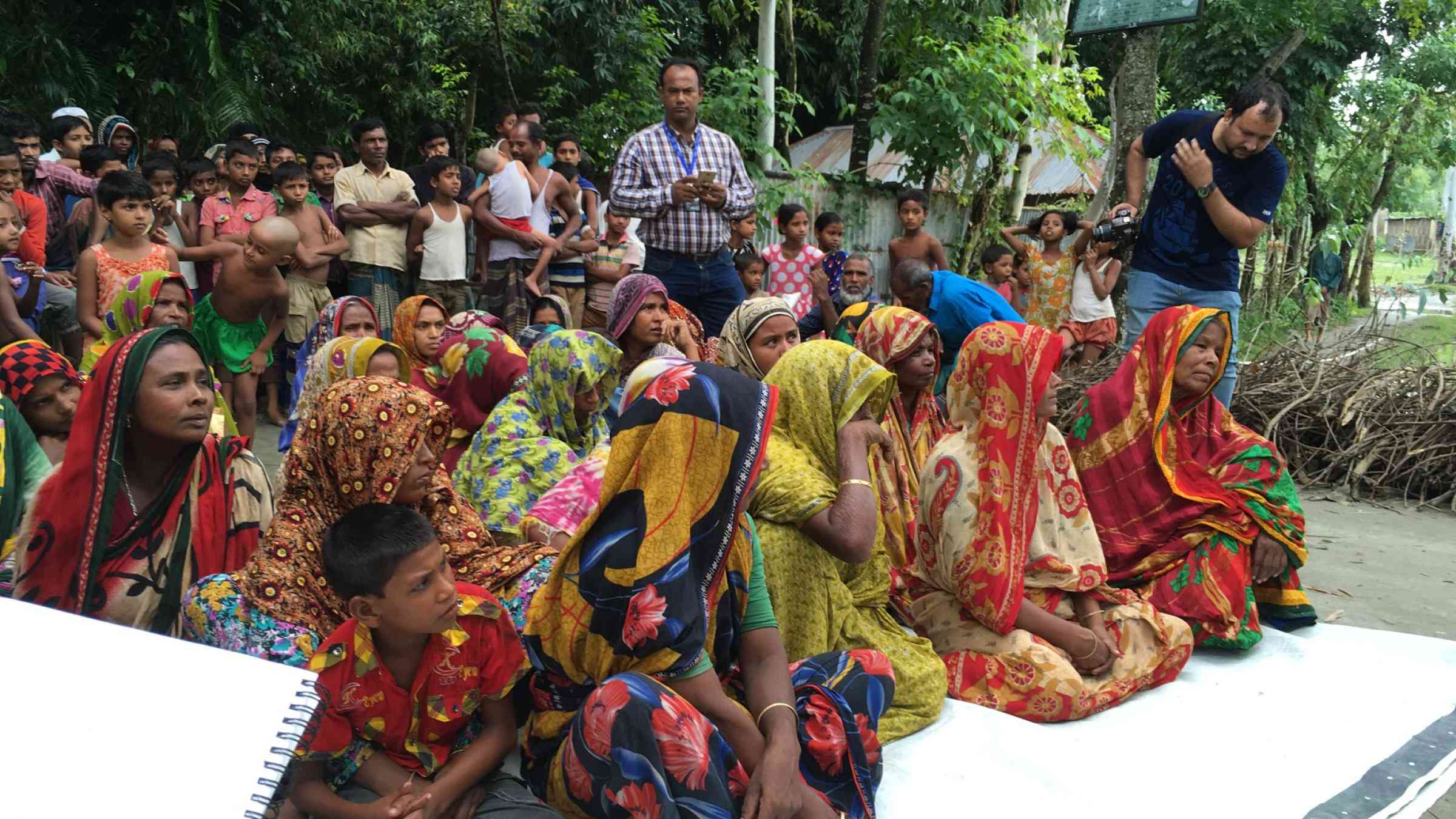Explore further
Members of the alliance work together for positive and sustainable change in the lives of people affected by poverty and injustice through coordinated and effective humanitarian, development and advocacy work. We work with and for people of all faiths and none.
In briefACT Alliance is composed of more than 130 member organisations working in long-term development and humanitarian assistance
- Members work in 130 countries
- Members employ around 30,000 staff and volunteers
- Members mobilise approximately $1.5 billion each year
- The alliance was created on 1 January 2010 by bringing together the efforts, resources, people and organisations who have been working together since 1995 as ACT International and since 2003 as ACT Development.
- The alliance is supported by an international Secretariat of 18 staff based in Geneva, Switzerland
The ACT Alliance works towards a world community where all God’s creation lives with dignity, justice, peace and full respect for human rights and the environment.
International networks and standardsThe ACT Alliance is a member of the International Council for Voluntary Agencies (ICVA), the Steering Committee for Humanitarian Response (SCHR) and the Humanitarian Accountability Partnership (HAP). ACT is a signatory to the Code of Conduct for the International Red Cross and Red Crescent Movement and NGOs in Disaster Relief and is committed to the Sphere Humanitarian Charter and Minimum Standards in Disaster Response and the Global Humanitarian Platform’s Principles of Partnership.
According to the ACT Alliance policy and guidelines on humanitarian response, DRR is one of the key cross-cutting issues. LRRD is strongly advocated to be included in humanitarian response.
ACT Alliance has advisory and community of practice groups working on cross-cutting issues. One such advisory group works on climate change, adaptation and DRR. As there is a connection between DRR and impacts of climate change it is hoped that more synergy can be established there. One of the objectives of the Climate Change advisory group is: "to minimize the negative impact of climate change on poor and vulnerable people by creating adequate framework conditions at national, regional and international levels for disaster risk reduction, adaptation and resettlement (where necessary), based on a fair burden sharing, ie. financially supported by the developed world in accordance with the historic responsiblity and fiancial capacity of states as well as with its respective human rights obligations".
* Steering Committee for Humanitarian Response (SCHR).
* International Council of Voluntary Agencies (ICVA).
* The Inter-Agency Standing Committee (IASC) - ACT Alliance does not have a seat in the IASC, but is represented through ICVA and SCHR.
* Sphere Project - ACT Alliance is on the board of the Sphere Project.
* Humanitarian Accountability Partnership (HAP).
Sudhanshu S Singh - ACT Alliance
Peter Rottach - Diakonie Katastrophenhilfe
ACT Alliance has six advisory groups comprising representatives (10) from its members from different parts of the world. One of the advisory groups is on Humanitarian Policy and Practice. This group has come up with a post-HFA paper with the purpose of briefing all the members of the progress on the post-HFA process and encourage them to take part in the various events taking place in this regard.
ACT Alliance has developed an Emergency Preparedness and Response Plan (EPRP) template. Each of the ACT national forums (comprising all ACT members in a given country), are expected to complete this template as part of the forum level preparedness. The template includes mapping of all risks and hazards in the country and also the existing early warning mechanisms. Based on that, a proper preparedness plan, including dissemination of early warning, is laid out.
DRR is the cross-cutting and essential component in all the humanitarian appeals issued by ACT. Therefore, through each humanitarian response, ACT attempts to reduce underlying risk factors. Advocacy is also strongly focused on risk reduction.
EPRP is one of the key instruments to prepare ACT secretariat and members for an effective response. ACT has a well-defined emergency response mechanism, with stipulated timelines to trigger a response.
ACT is presently coming up with an e-portal which will enable its members to initiate discussions and planning within six hours of a disaster occuring.
Voluntary Commitments
The Sendai Framework Commitments (SFVC) online platform serves to incentivize stakeholders to inform the public about their work, to provide a vehicle for sharing commitments and initiatives and for motivation toward the implementation of the Sendai Framework. In turn, UNDRR can monitor and take stock of the progress and impact.
ACT Alliance is involved in the following commitments:
